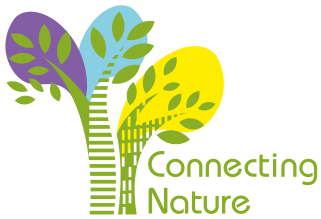Scale of the project: neighbourhood
Scales impacts from this NbS action should be assessed at neighbourhood and city levels.
Urban density in which the NbS is implemented: low (suburb at the limit with rural areas, etc.)
- To create a community garden with the target of the collective work, education and the production of vegetables as well
- Educating people to acquire and/or to improve skills in vegetables gardening
This is a new initiative in a wealthy suburban village near Budapest. Despite of that the people live in a small village, their lifestyle is more urban and they have a little connection to each other. Observing the situation, some local people decided to create a community garden where people can work together, and they have the possibility to aquire gardening skills.
The challenge is related to the urban lifstyle of inhabitants of Nagykovácsi, a suburban village. People go to work early morning to town, and arrive at evening, so they live in a house with a garden, but they can't make use of it. The project aims to educate people to work in their gardens.
The porject is also combined with another environmental friendly solutions: Renewable energy system (solar panels, etc.)
- Increased cultural richness and biodiversity
- Enhancing sustainable urbanisation
- Creation of green jobs relating to construction & maintenance of NBS
- Increase awareness of NBS solution & their effectiveness and co benefits
- Increase communities’ sense of ownership
- Increase social interaction
- Increase stakeholder awareness & knowledge about NBS
- Increase well-being
- Provision of health benefits
- Social inclusion
- Social learning about location & importance of NBS
Process enablers:
Knowledge drivers → Generation of evidence → Lesson learnt through projects
Process inhibitors:
Governance barriers → Perception
The governance of the project is based on the one person, who is the owner of the territory.
BUSINESS MODEL:
Business cluster: Technological
Business model: Maximize material productivity and energy efficiency
Business cluster: Social
Business model: Deliver functionality, rather than ownership
Barter is typical among the "shareholders".
Temporal perspective
Expected time for the NbS to become fully effective after its implementation: short (immediately to few months)
Feedback: not concerned
Expected life time of the intervention: around 10 years
State of progress of the project: Ongoing (project not delivered yet)
Global (estimated) cost of the project: > 20 000€
FINANCIAL MODEL:
Financial cluster: cluster4 public private
Financial model: Private Finance Initiative (PFI)
Everything is covered by he community. The products are not selled in the market, but rather a sort of barter.
- Object shapes
- On the Ground
- Structures characterized by food and resource production
- Urban farms
- Strategies actions
- Urban green space management
- Direct human interventions
- Reasoned or no-use of chemical fertilizers and pesticides
Judit , Vojczek (juditvojczek@gmail.com)
Non-profit organization (www. nate.hu)
Virágos street 31. Nagykovácsi 2094 Hungary
Further information
Nature4Cities (https://www.nature4cities.eu/) aims to develop a knowledge diffusion around Nature-Based Solution (NbS) and a decision support platform through new collaborative models.
This project is part of the Nature4Cities's pioneer case studies database, it will feed the observatory, NbS pre-selection and replication tools, gathered into the Geocluster4NBS.
This project was chosen as a pioneer case study for the following reasons: the project get poeple from different social classes closer to each other through common interest.
Nature4Cities project has received funding from the European Union’s Horizon 2020 research and innovation program under grant agreement No 730468.
